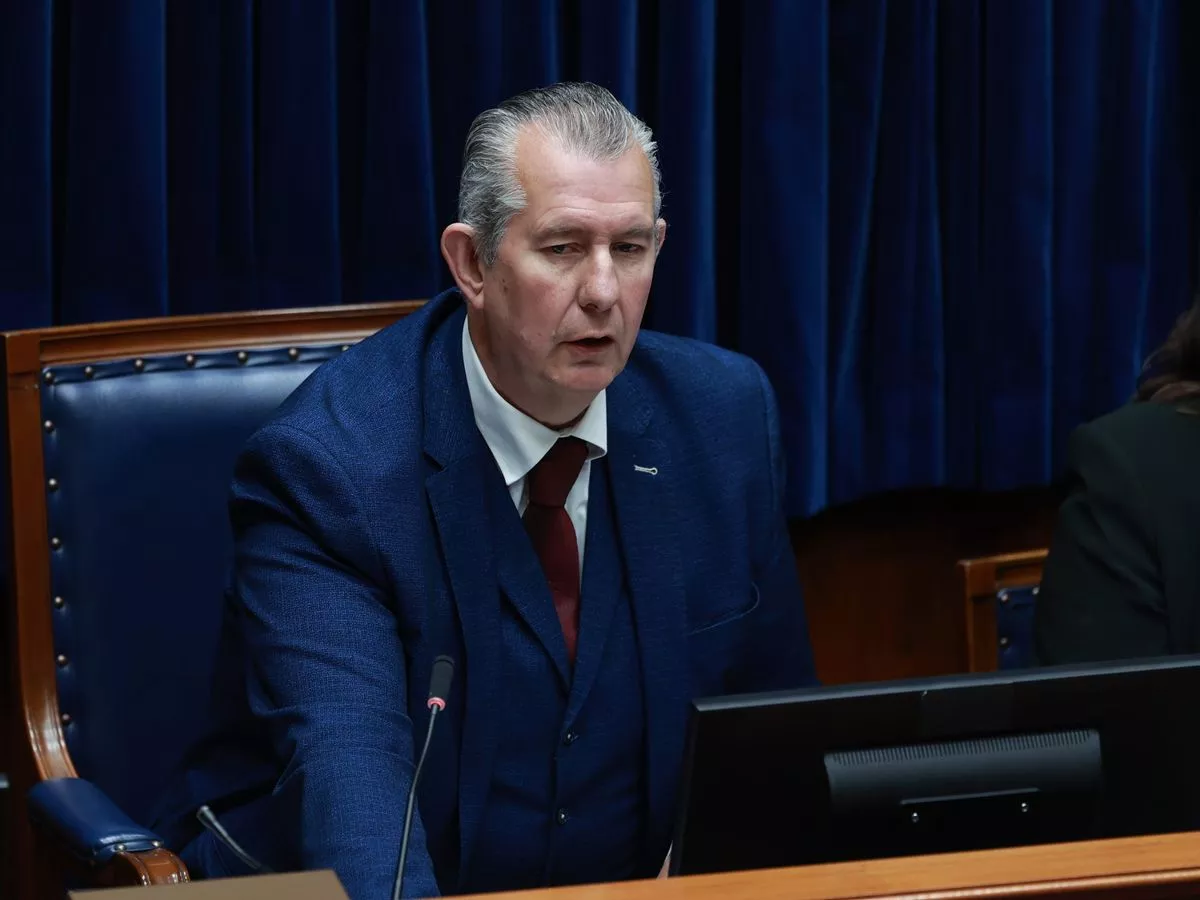By James Martin McCarthy
Copyright belfastlive

As MLAs gathered on Monday to debate the cost of school uniforms, the focus should have been on families who are paying hundreds of pounds every year. Year in, year out, we hear of parents having to fork out hundreds of pounds for a blazer, and that is before you even get to PE kits or having to purchase items from specific suppliers. The School Uniforms Bill was meant to be a chance to ease that burden. Instead, the spotlight has shifted to how the Assembly itself is run. Firstly, it is worth noting that the proposed legislation is not transformative. It will force schools to explain why uniforms cost what they do, and it gives the Education Minister the power to cap prices if he ever chooses to. What it does not do is guarantee that relief will arrive in time for parents who are struggling now. For those parents, the issue is urgent. A UK-wide report last year found families are spending more than £400 a year on secondary school uniforms and nearly £300 on primary. The school uniform grant available in Northern Ireland covers only a fraction of that. Even with the payment, many families are still hundreds of pounds out of pocket and often forced to choose between official suppliers at inflated prices. In a cost-of-living crisis where food, heating and rent already eat up most household income, uniforms are another source of stress, and one that falls heavily every August when school begins again. What has really caused unease, however, is how the Speaker, Edwin Poots, handled the debate. He blocked a series of committee amendments that would have added substance to the bill. They included a duty on the minister, his DUP colleague Paul Givan, to report back every three years, and a guarantee that girls could wear trousers. These were carefully worded proposals from the bill office and reflected the concerns of parents and schools. The three-year reporting cycle would have forced the minister to stand in front of MLAs and show whether the law was having any effect. Without it, the danger is that the enabling power to cap prices simply sits on the shelf. The amendment on trousers would have addressed equality directly, ensuring that every school had to provide girls with the option of wearing them. Another proposal would have recognised the sensory issues faced by children with special educational needs, a group often overlooked in uniform debates. Taken together, these were modest but meaningful steps that would have improved the law for real families. On Wednesday, a clerk told the Education Committee that this had never happened before. Not once in more than a decade had a committee amendment been excluded in this way. Their word for it was “unprecedented”. That should trouble anyone who cares about how Stormont works. To understand the significance of this, it is important to understand the role of the Speaker in this process. Almost any motion or bill can be amended; however, amendments must be submitted in advance to the Speaker. The Clerk of Business will then make a recommendation to the Speaker on whether the amendment should be selected or rejected. The Speaker will consider the Clerk’s advice and will make his decision. The Speaker is not required to, and in practice does not, explain his decision, and an amendment which has not been accepted cannot be referred to in debate by the Member who has submitted it. The confusion did not end there. Throughout the legislative process, officials from the Department of Education told the Education Committee that members would get to see the guidelines and that once they had, it would be clear that amendments were not necessary. On Monday, in the chamber, Givan flatly contradicted that. He told MLAs the guidelines would follow the law, not the other way around. It was an extraordinary reversal that made a nonsense of the assurances given to the committee. So the obvious questions grow louder. Why did Poots decide that this was the moment to shut down committee input? Why were amendments on accountability and inclusivity treated as disposable? And why, when the Minister’s own department had encouraged MLAs to trust a process that then shifted at the last minute, was the Speaker’s instinct to narrow scrutiny rather than open it up? Stormont’s committees exist to scrutinise ministers, test ideas and improve legislation before it reaches the floor. If the Speaker can dismiss their work without explanation, and if ministers can contradict their own officials without consequence, what confidence can the public have that their concerns are being taken seriously? Trust in Stormont is already fragile. After years of stalemate and collapse, people are sceptical about whether devolution delivers. Watching a Speaker block debate and a minister change his story in the chamber will not restore that trust. The bill will almost certainly pass, and parents may not see any immediate change in the cost of uniforms. But the bigger cost here is to democracy. Unless Poots and Givan explain why they acted as they did, suspicion will remain that scrutiny has been sacrificed for the sake of political convenience. For all the latest news, visit the Belfast Live homepage here and sign up to our politics newsletter here.



